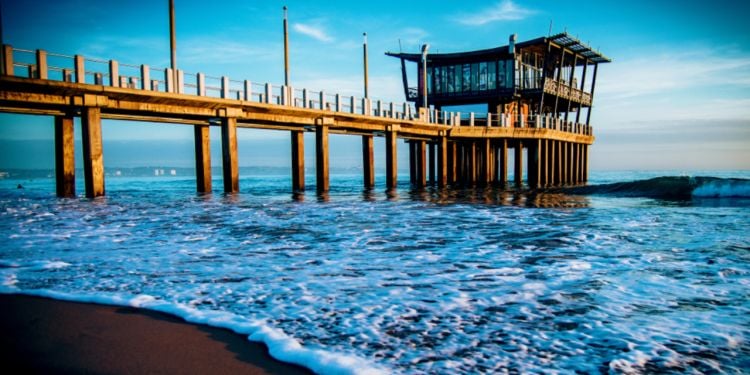Finding a job in Durban

A city of over three million people, Durban, also known as eThekwini, is one of the main tourist cities due to its tropical climate and the warm waters of the Indian Ocean that border it. Durban ranks behind Johannesburg and Cape Town in terms of economic activity and is home to the busiest port in Africa, making it a hub for imports and exports.
Durban is one of the wealthiest cities in South Africa and the major economic player in the province of KwaZulu-Natal. Its metropolitan area has a large and diversified economy, with the main sectors being tourism, manufacturing, port activities and transport, finance, automotive and petrochemicals. Its coastal location and port give it advantages for export-related industry.
Economic activity in Durban
Transport
The Port of Durban is the largest port in South Africa and the largest and busiest marine terminal in sub-Saharan Africa, with over 30 million tons of cargo moving through it each year. It is also the largest sugar port in the world.
Durban has the largest transport and storage sector in the country. This sector represents 15% of the city's economy but is highly dependent on the global economy. Shipping, air and road transport have been heavily affected in the last two years due to the decline in world trade and domestic demand as a result of the COVID-19 pandemic and the closure of borders, which has affected Durban's economy more than other cities in the country.
The sugar industry
South Africa produces about 20 million tons of sugar per year, most of which comes from KwaZulu-Natal, where most of the country's sugar mills are located. The sugar cane industry provides 79,000 direct jobs and over 350,000 indirect jobs. The sugar industry is diverse and combines the agricultural activities of cultivation with the production of raw and refined sugar, specialty sugars and other product lines. The Durban Bay terminal is one of the largest in the world.
The automotive industry
Mainly Durban, but also Pietermaritzburg, is home to the Toyota assembly plant and about 20% of the automotive components industry.
Mahindra set up its first bakkie assembly unit in Durban and started with a production of 2,500 vehicles per year and increased to 4,000. As the world's largest tractor manufacturer, Mahindra is also exploring the possibility of selling them in the South African market.
The automotive manufacturing sector is one of KwaZulu-Natal's major employers and a driver of economic development. Durban is an ideal location for the vehicle trade, with the port's car terminal handling over 60,000 vehicles per year.
The Bluff is the industrial area of Durban. It is home to a number of companies, including South Africa's largest oil refineries.
Tourism
Tourism is a major activity for the economy of Durban. It is one of the most popular destinations for South Africans throughout the year, but it also attracts foreign visitors. Before the Covid pandemic and the closure of the borders, tourists spent R12 billion in the city each year.
Durban is also known as a conference and convention city. The Albert Luthuli International Convention Center attracts high-profile conferences and hosts major international events. The Center can accommodate up to 10,000 delegates. For smaller conventions, business hotels can also host them. Most conferences last, on average, three to four days. The five main business hotels all have conference rooms and the hotel capacity to accommodate them. The main business hotels are the Hilton Durban, Protea hotel Edward, Southern Sun Elangeni, and Southern Sun Beach. They are all conveniently located along the Promenade and close to the Convention Center.
The economic climate in Durban
The Central Business District experienced an economic decline due to crime in the area and many businesses moved to the Umhlanga area in the north of the city, which has become the main economic center of Durban with its connectivity to the greater Durban area for easy travel and its proximity to King Shaka International Airport.
After a severe economic downturn due to the Covid 19 pandemic, the region was hit hard in July 2021 by the worst violence since the end of apartheid. A wave of rioting, looting and pillaging following the arrest of former president Jacob Zuma left more than 350 people dead and millions of euros worth of damage in KwaZulu-Natal province.
In April 2022, the region experienced flooding that destroyed a large amount of infrastructure, as well as roads and bridges. The transport sector suffered heavy losses, as did the port sector, as operations had to be temporarily halted. These floods have caused the death of more than 300 people and significant material damage. The economy is now suffering losses due to almost daily power cuts as Eskom does not produce enough electricity to supply the country.
All of these events have contributed to an increase in the unemployment rate, which currently stands at 28%.
The job market in Durban
Job opportunities for expatriates in Durban lie mainly in the customer service sector, such as tourism, hospitality and outsourced call centers. A good command of foreign languages is, therefore, a serious asset when settling in Durban.
The job market is quite tight in Durban as the city does not experience migration of skills to other cities for better pay.
Moreover, since 2018, due to a very high unemployment rate and in order to encourage the hiring of South Africans, the government has tightened its policy in terms of granting work permits for expatriates. It is almost impossible to obtain a general work permit that does not require specific skills or experience. Only expatriates who can apply for an Essential Skills permit have a chance of finding a job, but the long and tedious administrative procedures discourage many potential employers who prefer to look to the local market. In addition, the application for this permit can only be made from the potential employee's country of residence. This permit is only granted by the government to qualified and experienced employees with skills that the country needs.
The working conditions and social protection are not at the level of what an employee has in Europe, for example. The average gross salary is 22800 Rands (about 1350 euros), the employer is not obliged to take out health insurance for its employees, there are no contributions to pension funds, the working week is 45 hours and vacations are 21 consecutive days plus public holidays.
Finding a job in Durban
Recruitment agencies, some of which specialize in particular job sectors, can help you find work in Durban, and there are also online job listings in local and national newspapers. The Mercury and Daily News publishes a "Workplace" employment supplement every Wednesday. Websites that offer international job opportunities include Career Junction, PNet, Indeed, and Gumtree. Some sites specialize in specific industries, such as Career Web for IT jobs, Michael Page Africa for management positions, and E-Financial Careers for finance, banking and insurance jobs.
It is not very complicated to open your own business in South Africa. The Business Permit is quite easy to obtain as long as you have a well-defined project and a financial contribution. Starting a business is strongly encouraged by the government as it provides employment opportunities for South Africans.
Useful links:








